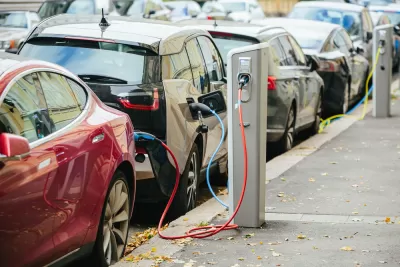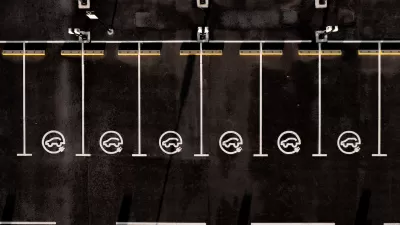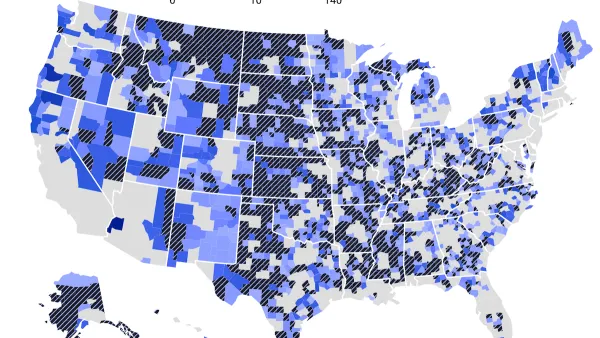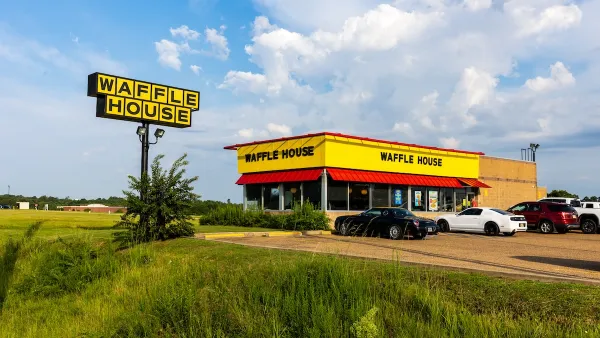Advocates warn that an inequitable distribution of EV charging facilities could lead to ‘charging deserts’ that will prevent widespread adoption of EVs in low-income communities.

The recently passed Inflation Reduction Act (IRA), among other federal programs, creates incentives that encourage the adoption of electric vehicles and supports the development of a nationwide EV charging network. However, some advocates worry that the infrastructure and incentives won’t reach the poorest communities—the people most impacted by the effects of pollution from fossil fuel-powered vehicles.
A piece by Brett Marsh in Grist highlights the uneven distribution of charging infrastructure, which is often difficult to find in low-income areas, comparing the problem to so-called ‘food deserts.’ “If there are neighborhoods that are already food deserts, why expect them to have a charging station or three?”
According to Marsh, “Charging stations are more likely to be found in dense clusters in wealthier and generally whiter urban areas. Drive, or walk, through a low-income community of color or a rural area, and you would be hard-pressed to find a charging station.” Presently, incentive programs for buying electric vehicles benefit wealthier households most.
Activists note that the inequitable rollout of EV infrastructure reflects historical patterns. “Activists and community members in neighborhoods of color have reflected on the missed opportunities of previous massive national infrastructure projects,” such as the interstate highway system. Advocates for low-income communities hope that they won’t once again be left behind.
FULL STORY: To Ensure Access to Electric Cars, Some Activists Are Calling Attention to ‘Charging Deserts’

Planetizen Federal Action Tracker
A weekly monitor of how Trump’s orders and actions are impacting planners and planning in America.

Maui's Vacation Rental Debate Turns Ugly
Verbal attacks, misinformation campaigns and fistfights plague a high-stakes debate to convert thousands of vacation rentals into long-term housing.

San Francisco Suspends Traffic Calming Amidst Record Deaths
Citing “a challenging fiscal landscape,” the city will cease the program on the heels of 42 traffic deaths, including 24 pedestrians.

Defunct Pittsburgh Power Plant to Become Residential Tower
A decommissioned steam heat plant will be redeveloped into almost 100 affordable housing units.

Trump Prompts Restructuring of Transportation Research Board in “Unprecedented Overreach”
The TRB has eliminated more than half of its committees including those focused on climate, equity, and cities.

Amtrak Rolls Out New Orleans to Alabama “Mardi Gras” Train
The new service will operate morning and evening departures between Mobile and New Orleans.
Urban Design for Planners 1: Software Tools
This six-course series explores essential urban design concepts using open source software and equips planners with the tools they need to participate fully in the urban design process.
Planning for Universal Design
Learn the tools for implementing Universal Design in planning regulations.
Heyer Gruel & Associates PA
JM Goldson LLC
Custer County Colorado
City of Camden Redevelopment Agency
City of Astoria
Transportation Research & Education Center (TREC) at Portland State University
Jefferson Parish Government
Camden Redevelopment Agency
City of Claremont





























